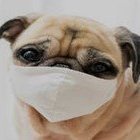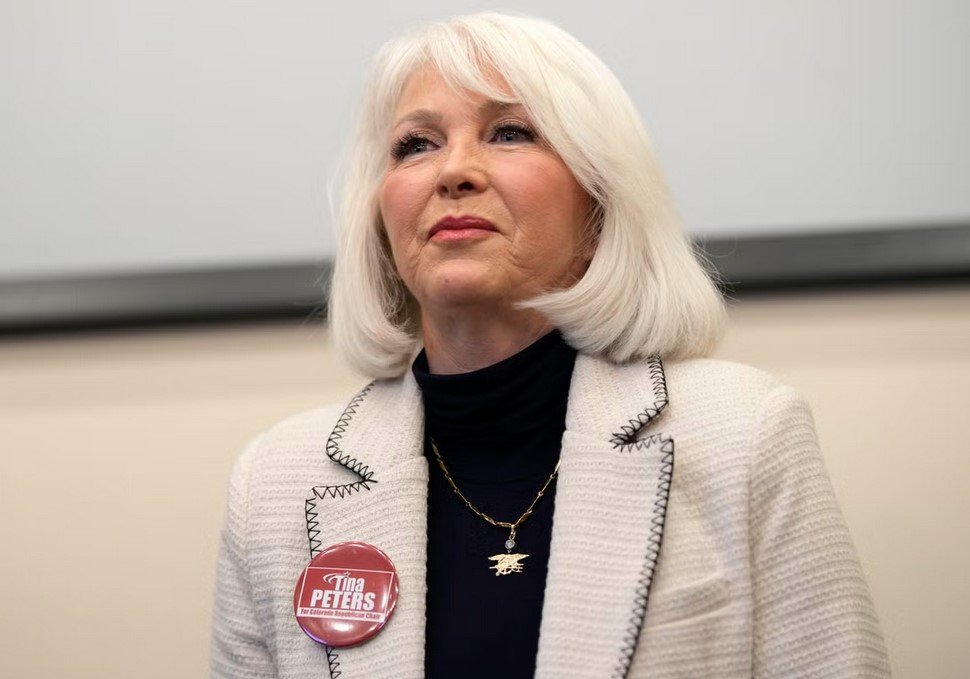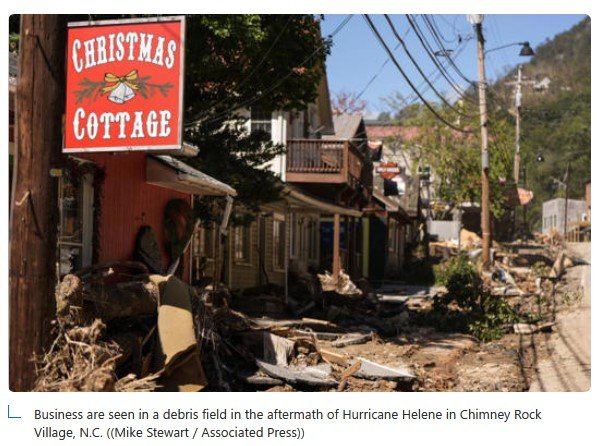-
Posts
37,239 -
Joined
-
Last visited
-
Days Won
6
Content Type
Events
Forums
Downloads
Quizzes
Gallery
Blogs
Everything posted by TallGuyJohninBKK
-
By the time older cotton sheets get to the point of having a tear or tears, the fabric probably is a bit worn for making a shirt/shirts out of them. But in our case, what has worked nicely over time is taking a king-size good quality cotton sheet that finally sustains a tear and having our local Thai tailor shop cut the remaining good-quality sheet sections into matching pillow cases -- which works particularly well if the sheet involved in a standard color such as white where the newly made pillow cases can easily be used with other matching color sheet sets. And the good part is by that point the worn cotton also makes for very soft and cozy pillow case material.
-

Thailand and U.S. Set to Resume Direct Flights by February
TallGuyJohninBKK replied to webfact's topic in Thailand News
It's been years ago now.... but I think I remember taking a Thai Air nonstop flight between BKK and LAX back in the early-mid 2000s before they spiked all the nonstop services... As best as I can recall, I flew at that time on a Thai Air 777, but my memory may be off about that. Either way, it was a LONG flight! Made me come to realize how much I enjoyed the normal stopovers at Taipei airport with EVA. -
Jack, what's the logistics these days of a DTV application: Specifically: --do you have to be physically present in your home country in order to apply, or can apply from anywhere outside Thailand where there's a participating Thai consulate? --Once issued, does it involve the issuing consulate physically stamping one's passport (meaning you have to physically give them your passport), or it's all digital and you get some visa document via email or similar? TIA
-

Bus from Suvarnabhumi Airport to Hua Hin
TallGuyJohninBKK replied to cowboys2008's topic in Hua Hin and Cha-Am
I use the VIP bus all the time. It's great that their buses have a good functioning and comfortable air con system. But I've never felt that it was too cold inside or the need to cover myself with anything. Nor have I seen other passengers using blankets typically. YMMV. -

Bus from Suvarnabhumi Airport to Hua Hin
TallGuyJohninBKK replied to cowboys2008's topic in Hua Hin and Cha-Am
Users of the VIP bus service from Swampy have two inhouse options once they arrive at the Hua Hin VIP bus terminal near the Hua Hin Airport. 1. The bus company does still offer a FREE onward van transport service (the same vans they use for the paid service below), but it only drops free passengers at the Hua Hin Clocktower meeting point location in the downtown area. If you tell the bus station staff you want to go to Clocktower, they won't charge you a fee for the van trip. or 2. If you want one of their vans to take you direct to your hotel or condo in the HH or Cha-Am area, they charge a flat 100 baht fee for the shared van ride. Meaning you're in a shared van with other passengers, and they'll tend to drop off those first whose locations are closest to the bus terminal, and then work outward from there. One thing to note: their van service is only for arriving passengers from Swampy. They do NOT offer a return van service that will take you from your hotel or condo TO the VIP bus terminal for your return trip. By comparison, Grab taxis summoned using the Grab app are readily available in Hua Hin. When I took Grab from near the Market Village Mall to the HH VIP bus station recently during a late morning weekend day, the fare was less than 100 baht. -
When I was looking for my current trip just last week, I was seeing various HH taxi services advertising rates as low as the 1700 to 2000b range. That's HH based taxi companies that make their living going back and forth between HH and Swampy in BKK.
-
I've been wanting to take the train ever since SRT began their new service some months back. But I'd only book an air con seat... and.... Last time I checked their schedule, the only speedy trip of 4 hours or less to HH from Bang Su meant catching a departing train like 8 am in the morning, which also meant getting to HH well before most hotel check-in times of 2 pm or later. The other morning / midday trains were much longer 4+ hour travel times. Also, of course, you can't take the HH train direct from Swampy... And it's a bit of a hassle to travel from Swampy (if you're arriving there) out to Bang Su to catch the train to HH. So for all those reasons, I've been sticking with the VIP bus, since from my home, catching the Airport Rail Link train to Swampy and the bus from there is pretty easy and cheap.
-
The airport bus to Hua Hin is a VIP bus, not a typical Thai public transport bus. Thus in many trips, I've never had any of the kinds of issues you claim above. The airport VIP bus trips to Hua Hin are typically quiet and uneventful. And the bus seating, befitting a VIP standard, is only 3 across, meaning two seats on one side of the aisle, and one seat on the other side... Meaning a person can sit entirely alone with no one on either side of them, if they opt for the single seat side. I could easily afford the fare for a private taxi... But the reason I can is I generally don't waste my money on needless expenses like a private taxi to Hua Hin. The VIP bus is safe, comfortable, predictable and easy to book and arrange, also with no extra tipping required. And the best part is, you're getting a regular professional driver who's on a set schedule and travels the same route constantly, as opposed to a taxi driver you don't know who may be rushing to minimize the time spent on his/her travel.
-
Vaccines aren’t responsible for rise in autism cases; change in diagnostic criteria is the most plausible explanation 2023-07-20 Individuals with ASD don’t all exhibit the same symptoms or the same severity of symptoms. To account for this diversity, the criteria for diagnosing ASD have evolved and broadened over time, which may result in an increase in the number of cases diagnosed each year. The scientific evidence overwhelmingly shows that vaccines don’t cause autism. ... While Andrew Wakefield’s 1998 study purporting to link autism to the MMR vaccine has since been retracted for numerous flaws, including data fabrication and ethical violations, the claim that vaccines cause autism still persists to this day. ... Vaccines don’t cause autism In spite of recurring claims to the opposite effect and claims that studies haven’t looked into this, there is now a scientific consensus—established from numerous studies showing no association between vaccines and autism—that vaccines don’t cause autism. The CDC stated that vaccines aren’t a known cause of autism. The U.S. National Academy of Medicine as well as the American Academy of Child and Adolescent Psychiatry also shared that conclusion. (more) https://science.feedback.org/review/vaccines-dont-cause-increase-autism-prevalence-changes-diagnostic-criteria-most-plausible-explanation/
-
If you wanna shell out a couple thousand baht for a private taxi, that's your choice. But every time I go to Hua Hin, I choose the Airport VIP bus from Suvarnabhumi, which has its own ticket counter near Gate 8 on the ground level, the same level where the meter taxis are located. Departure times from early morning to late at night, usually every hour or two. The fare for the VIP air con bus to Hua Hin is about 325b one-way, and includes either a free van trip from their bus station near the Hua Hin airport to the Clock Tower location in downtown Hua Hin, or the option of a shared van ride for an extra 100b to the hotel location of your choice in Hua Hin. Typical trip time is about 4 hours, depending on traffic and weather conditions. No stops along the way, except for sometimes a quick stop in Cha Am if any passengers want to get off there. The bus seats are very comfortable with good legroom even for tall folks, the bus has good air con, and you're allowed one check-in suitcase that goes into the bus' luggage hold along with one carry-on small bag per ticket. (I think you can also pay extra if you have more suitcases). You can also pre-purchase the Airport VIP bus tickets online and pre-select your specific seat(s) at: https://airporthuahinbus.com/ Ahh...and PS... unlike a lot of van drivers and some taxi drivers, the VIP airport bus drivers I've had on many trips have consistently been safe and sane in their driving style, which can be a rarity here in Thailand.
-
Trump Slammed Over Hurricane Helene 'Lies' Oct 04, 2024 ... Geoff Duncan, the Republican former lieutenant governor of Georgia who has endorsed Harris in this year's election, said during a CNN broadcast on Friday night that Trump's false hurricane claims acted as solemn evidence pertaining to the state of his party. "It's a sobering reminder of where the Republican Party is at right now, and how deep in the gutter we truly are," Duncan told CNN's Kaitlan Collins. "To think that we're going to use this platform to politicize ... one of the worst storms to hit this region ever." "Donald Trump is down in Georgia today only because he cares about trying to win Georgia," he added. "Because he's realized that if he loses Georgia, he's probably going to end up going to jail." (more) https://www.newsweek.com/trump-slammed-over-hurricane-helene-lies-1964258
-
The guy in question in the OP wasn't the "Former head of BLM IN Greater Atlanta" as your OP post intro claims. The guy was a former BLM member who got booted out of the real BLM organization in Atlanta and then thereafter, went on to create by himself a similarly named organization that was entirely his own individual venture. Just as the NY Post article that you used as your source actually explains in great detail.
-
False claims about FEMA disaster funds and migrants pushed by Trump There is no evidence that disaster relief funds were used on immigrants in the U.S. illegally. FEMA disaster money comes from dedicated funds that cannot be used for other purposes. False claims that federal emergency disaster money was given to migrants in the U.S. illegally have spread quickly in recent days, boosted by former President Donald Trump and some of his most high-profile supporters. ... Trump and his allies appear to be conflating two different funds. FEMA has dedicated disaster relief money that cannot be used for other purposes. Separately, it was tasked by Congress in 2022 to disseminate money from Customs and Border Protection to help communities that received influxes of migrants. ... It is illegal for funding that is appropriated by Congress for one purpose to be diverted and used for another purpose. https://www.nbcnews.com/politics/donald-trump/false-claims-fema-disaster-funds-migrants-pushed-trump-rcna173955
-
A former Colorado county clerk has been sentenced to nine years behind bars for leading a scheme to breach voting system data in her county A judge sentenced a former Colorado county clerk to nine years behind bars Thursday for leading a voting system data-breach scheme inspired by the rampant false claims that fraud altered the 2020 presidential outcome. Judge Matthew Barrett handed down the sentence after jurors found Tina Peters guilty in August for allowing a man to misuse a security card to access to the Mesa County election system and for being deceptive about that person’s identity. ... At trial, prosecutors said Peters, a Republican, was seeking fame and became “fixated” on voting problems after becoming involved with those who had questioned the accuracy of the presidential election results. (more) https://www.independent.co.uk/news/colorado-clerk-tina-peters-sentenced-fraud-trump-b2623507.html
-
There is no evidence that disaster relief funds were used on immigrants in the U.S. illegally. FEMA disaster money comes from dedicated funds that cannot be used for other purposes. Oct. 5, 2024 False claims that federal emergency disaster money was given to migrants in the U.S. illegally have spread quickly in recent days, boosted by former President Donald Trump and some of his most high-profile supporters. Trump repeated one of the more extreme baseless allegations during a rally Thursday in Saginaw, Michigan, saying that the money had been stolen. Efforts to clarify the funding have done little to stymie a battery of claims about FEMA and migrants that have spanned from misleading and lacking context to entirely false. Some, like Rep. Jim Jordan, R-Ohio, falsely claimed on X that FEMA had used disaster funds to house migrants and that the government had “abandoned” hard hit areas. X owner Elon Musk, among Trump’s most vocal backers, reposted Jordan’s false claim and a variety of others about FEMA.' (more) https://www.nbcnews.com/politics/donald-trump/false-claims-fema-disaster-funds-migrants-pushed-trump-rcna173955
-
Marjorie Taylor Greene Appears To Claim Democrats ‘Control The Weather’—After Hurricane Helene Strikes Southeast Oct 4, 2024 In a series of social media posts, Rep. Marjorie Taylor Greene, R-Ga., appeared to claim Democrats could “control the weather” after Hurricane Helene ripped through the Southeast, adding to other baseless conspiracy theories promoted by the lawmaker, including her earlier support of the QAnon movement and how space lasers caused forest fires. ... There is “no sound physical hypothesis” supporting claims that humans can alter the strength of hurricanes, tornadoes or “damaging winds in general,” according to the National Oceanic and Atmospheric Administration, which said it previously researched methods to divert tropical cyclones in the 1960s. https://www.forbes.com/sites/tylerroush/2024/10/04/marjorie-taylor-greene-appears-to-claim-democrats-control-the-weather-after-hurricane-helene-strikes-southeast/
-
Trump makes false claims about federal response as he campaigns in area ravaged by Hurricane Helene October 1, 2024 VALDOSTA, Ga. (AP) — Donald Trump repeatedly spread falsehoods Monday about the federal response to Hurricane Helene despite claiming not to be politicizing the disaster as he toured hard-hit areas in south Georgia. The former president and Republican nominee claimed upon landing in Valdosta that President Joe Biden was “sleeping” and not responding to Georgia Gov. Brian Kemp, who he said was “calling the president and hasn’t been able to get him.” He repeated the claim at an event with reporters after being told Kemp said he had spoken to Biden. ... The White House previously announced that Biden spoke by phone Sunday night with Kemp and North Carolina Gov. Roy Cooper, as well as Scott Matheson, mayor of Valdosta, Georgia, and Florida Emergency Management Director John Louk. Kemp confirmed Monday morning that he spoke to Biden the night before. (more) https://apnews.com/article/kamala-harris-donald-trump-hurricane-helene-3097f1706455929adf5a4eb67f9cdf0f
-
The facts emerging from Hurricane Helene's destruction are heartrending: Businesses and homes destroyed, whole communities nearly wiped out, hundreds of lives lost, hundreds of people missing. Yet this devastation and despair are not enough for the extremist groups, disinformation agents, hucksters and politicians who are exploiting the disaster to spread false claims and conspiracy theories about it and the government's response. Former President Trump falsely claims the federal government is intentionally withholding aid to Republican disaster victims. Far-right extremist groups falsely warn on social media that officials plan to bulldoze affected communities and seize the land. A tale straight from science fiction asserts that Washington used weather control technology to steer Helene toward Republican voters in order to tilt the presidential election. (more) https://www.msn.com/en-us/news/politics/after-the-deluge-the-lies-misinformation-and-hoaxes-hinder-helene-recovery/ar-AA1rKBjO?
-
Trump got it wrong on a past Iranian missile attack and again cast aside the US troop injuries as nothing more than headaches Oct 2, 2024 Trump recently got the details of a 2020 Iranian missile strike on US forces wrong. He also again downplayed the resulting traumatic brain injuries of more than 100 US service members. The former President has repeatedly dismissed the TBIs as "not very serious" or just "headaches. https://archive.ph/8SbeT
-
If you read the news report above, you'll find that this guy was engaging in fraud entirely on his own under the guise of a similarly named organization that he created and ran by himself -- years after he no longer had any role in the real Black Lives Matters organization in Atlanta. "The allegations surfaced in April 2020 when the FBI’s National Threat Operations Center received a complaint accusing Page of misrepresenting himself as a leader of the Black Lives Matter movement and misusing the organization's funds. According to prosecutors, their investigation revealed that Page had established a social media page named Black Lives Matter of Greater Atlanta (BLMGA) and registered it as a non-profit capable of receiving donations, with a significant presence on the fundraising platform GoFundMe. [emphasis added] According to an FBI news release, financial scrutiny revealed that from April 2018 to May 2020, the BLMGA bank account, solely managed by Page, showcased minor transactions never exceeding $5,000. However, in the wake of George Floyd’s death, donations surged, with June 2020 witnessing approximately $36,493.80, July 2020 around $370,933.69, and August 2020 an additional $59,914.69 in contributions. These funds were directly transferred to the account operated by "Black Lives Matter of Greater Atlanta, Inc." ... In January 2016, court records show Page "blustered his way past security guards at the Sloppy Floyd Building by claiming he was an FBI agent." Page and the Black Lives Matter of Atlanta movement parted ways shortly after the arrest, which is when he started Black Lives Matter of Greater Atlanta." [emphasis added]
-
The NY Post report above comments "undetected for decades." Let's see, Walz has been governor there only since 2019, which means a whole lot of other prior governors served while the same alleged conduct -- supposedly underreporting investment fees paid by the pension fund -- was occurring. Which ones do you want to pin that on? https://www.nga.org/former-governors/minnesota/
-
I see / can find no outcome in court of the above case.... But I did find the following filed by the same Queens D.A.: Campaign volunteers indicted in Queens voter fraud scheme July 29, 2024 Six campaign volunteers, including the daughter of a City Council candidate in Queens, were indicted Thursday on voter fraud charges for allegedly submitting bogus absentee ballots, officials said. The suspects were charged with trying to rig a Council race for Republican candidate Yu-Ching James Pai, who was running in a June 2023 primary for the District 20 Council seat in Queens. ... The allegations revolve around a plot to submit fraudulent absentee ballot applications to boost Pai’s campaign. https://www.nydailynews.com/2024/07/25/campaign-volunteers-indicted-in-queens-voter-fraud-scheme/
-
And now just this week in Michigan, we have the Democrat attorney general filing felony criminal charges against four voters accused of attempted double voting in this year's presidential primary, and against three city clerk staff who allegedly facilitated the alleged fraud -- which a Republican county prosecutor had declined to pursue. 7 people face felony charges in double voting incident in St. Clair Shores October 4, 2024 (CBS DETROIT) - Seven people, including four voters, face felony charges in an alleged double voting incident in Michigan's August 2024 primary election, Michigan Attorney General Dana Nessel announced Friday morning. The incident involves four St. Clair Shores residents flagged for submitting two ballots in the primary election on Aug. 6. According to Nessel, each person voted by absentee ballot, returned their ballot and then voted in person at their polling location on election day. In three of the four cases, voters signed an affidavit saying they had not received an absentee ballot despite completing and returning one, Nessel said. Election workers informed the voters that their absentee ballots had already been received but were allegedly instructed by assistant clerks to override the system and issue in-person ballots. ... In August, Macomb County Prosecutor [Republican] Peter Lucido declined to authorize charges against the four voters, saying an investigation showed that the "appropriate mechanisms functioned as intended to detect the issue," and that his office "concluded probable cause did not exist to believe that a crime had occurred." (more) https://www.cbsnews.com/detroit/news/dana-nessel-announces-felony-election-law-violations/ Michigan attorney general charges 7 over double voting in Macomb County ... In a statement, Lucido said he respects the Attorney General's "jurisdiction and investigatory resources." "It is not unusual for the Attorney General to charge criminal cases in which a local prosecutor did not," Lucido added. "I expect justice will be served. I have no further comment on this ongoing case." But Christina Hines, the prosecutor's Democratic opponent in the Nov. 5 election, said "it is unacceptable that our elected Prosecutor chose not to even investigate this case" and argued it showed Lucido is unqualified to hold office. (more) https://www.detroitnews.com/story/news/local/macomb-county/2024/10/04/michigan-attorney-general-dana-nessel-charges-voters-clerks-double-voting-macomb-county-pete-lucido/75511947007/









